Having a strong immune system can be a major plus during cold and flu season. While quality sleep, regular exercise, proper hand-washing and social distancing are all important factors that contribute to a healthy immune system, the foods you eat can also play a key role.
In particular, you’ll want to eat foods containing important vitamins and minerals that help strengthen the immune system such as vitamins A, C and D, as well as zinc, omega-3 fatty acids and antioxidants.
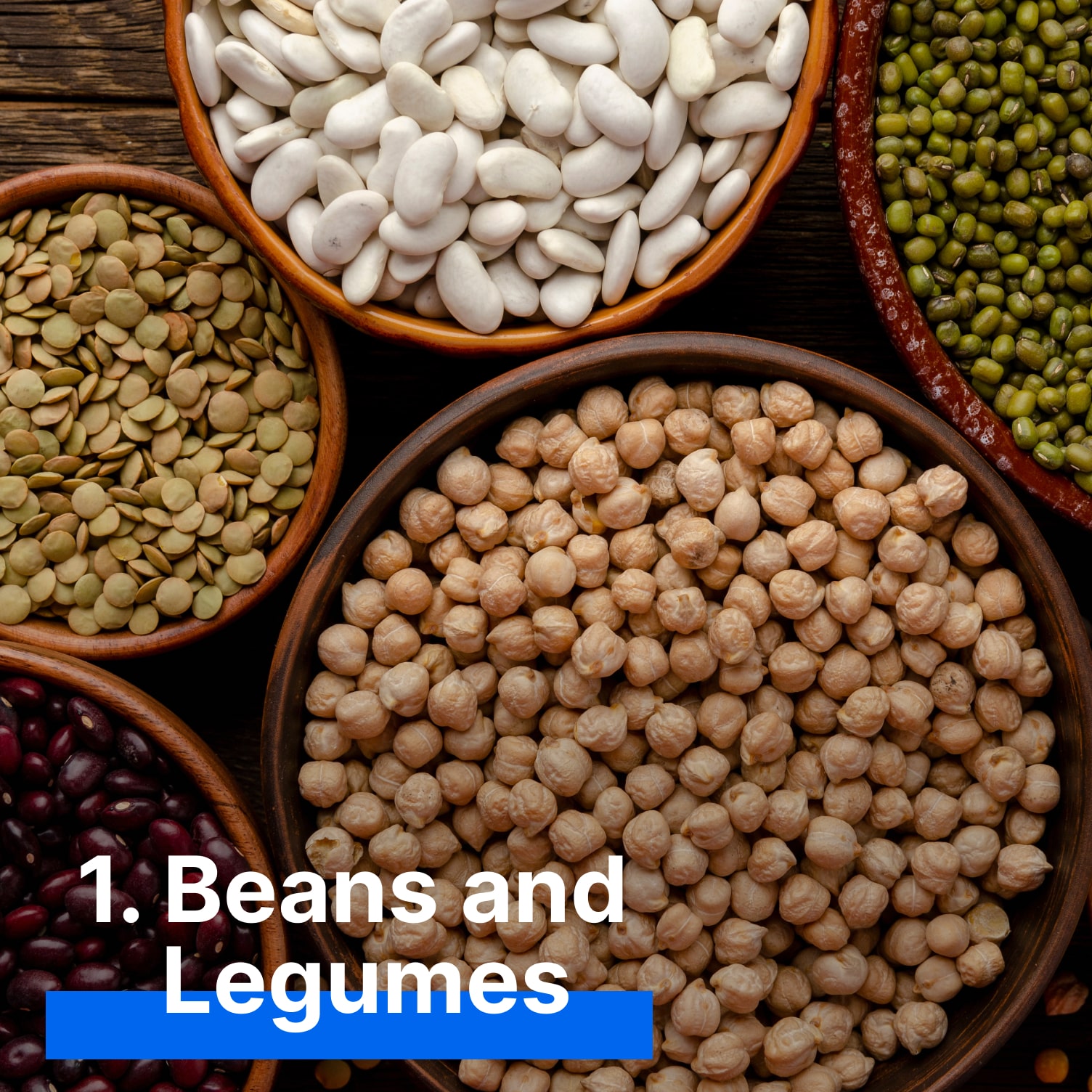
Adding beans to your meals, like black beans, garbanzo beans, white beans or lentils, can offer several benefits. One cup of fiber-rich beans offers 13% of the daily recommendation of zinc. Consuming sufficient amounts of zinc can help shorten the duration of a cold. Beans also offer micronutrients, like iron, magnesium, phosphorus, B-vitamins and folate, as well as plant-based protein.
Try it: Use them in soups, dips, sauces or mixed with meat for a budget-friendly protein boost.
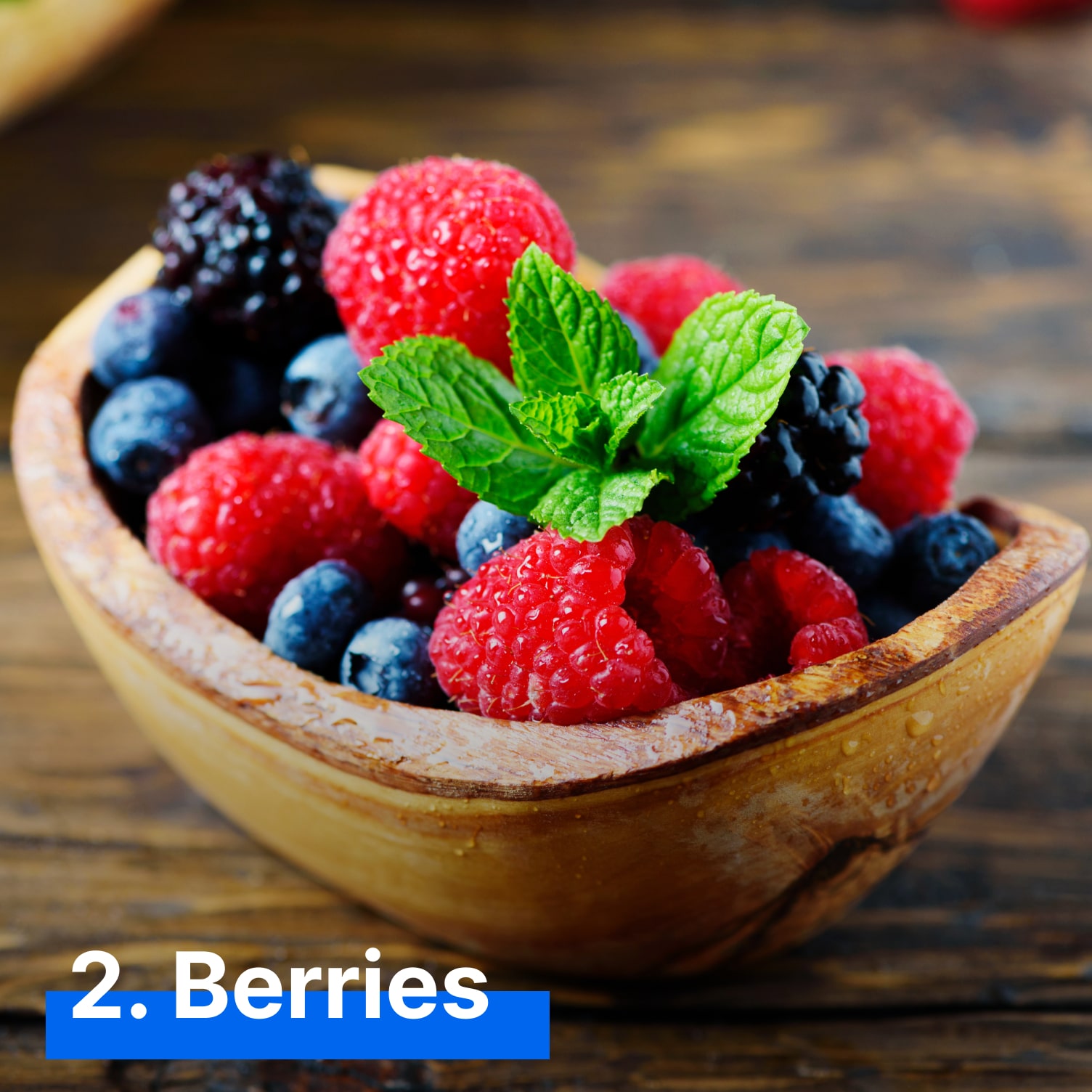
Berries, including blueberries, strawberries and raspberries, contain vitamin C and a variety of flavonoids and antioxidants, compounds that help neutralize damaging free radicals in the body and can lower the risk of chronic disease. Flavonoids can be helpful for reducing the incidence of upper respiratory infections.
Try it: Add berries to your salads, smoothies, oatmeal, toast or yogurt.
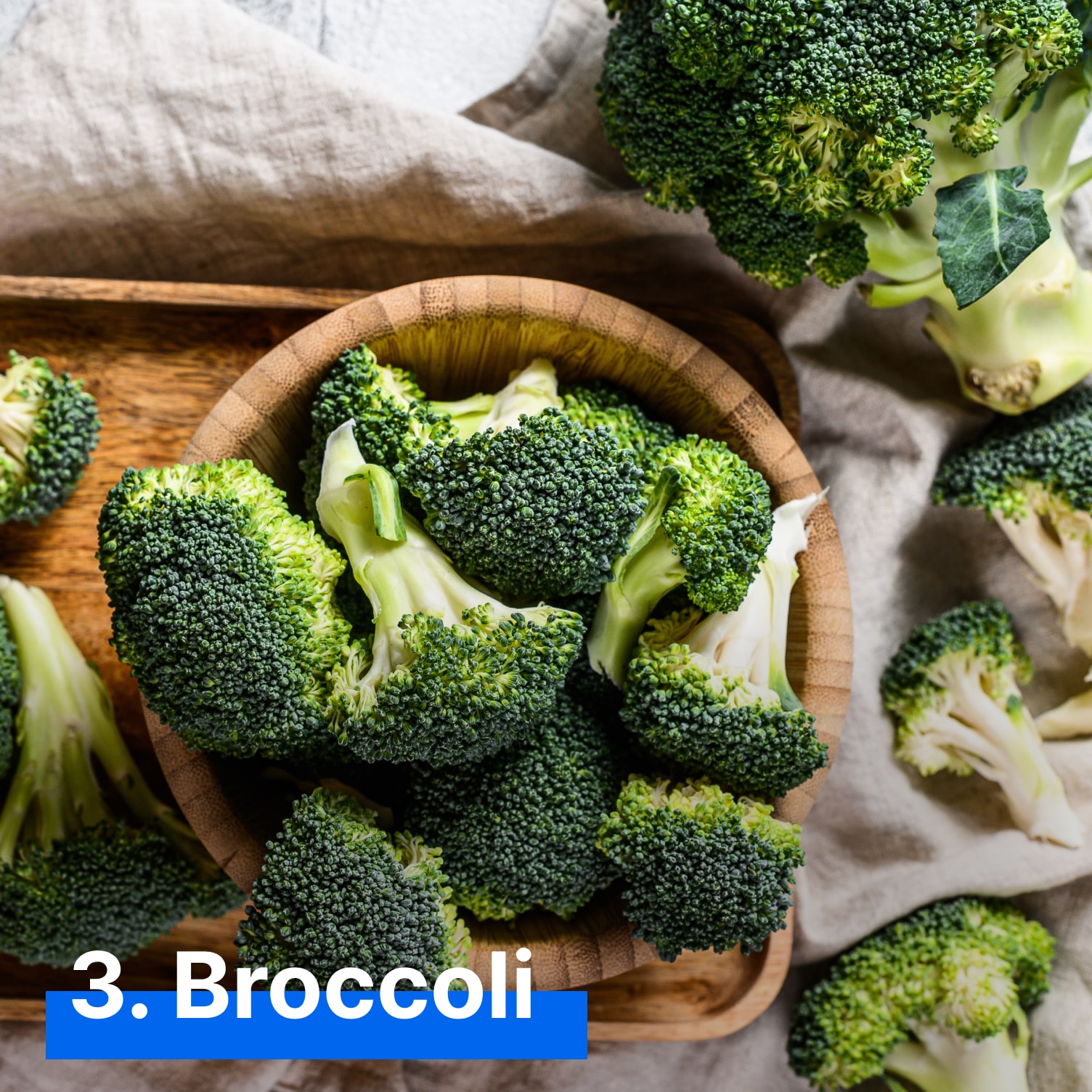
Broccoli is a nutrient-dense cruciferous veggie rich in vitamins A, C and E. Consuming raw broccoli yields a higher vitamin C content, though cooking it slightly releases more vitamin A.
Try it: Add broccoli to pasta, breakfast hash or egg muffins or snack on it raw with a healthy dip like hummus.

Eggs (including the yolk) are a nutritious, immune system-fueling food to add to your diet. Most nutrients are found in the yolk, like vitamins A, D, zinc and selenium. Eggs are a great protein-rich snack and can be great for any meal from breakfast to dinner.
Try it: From scrambled eggs to avocado toast and quiche, there are countless ways to enjoy eggs.
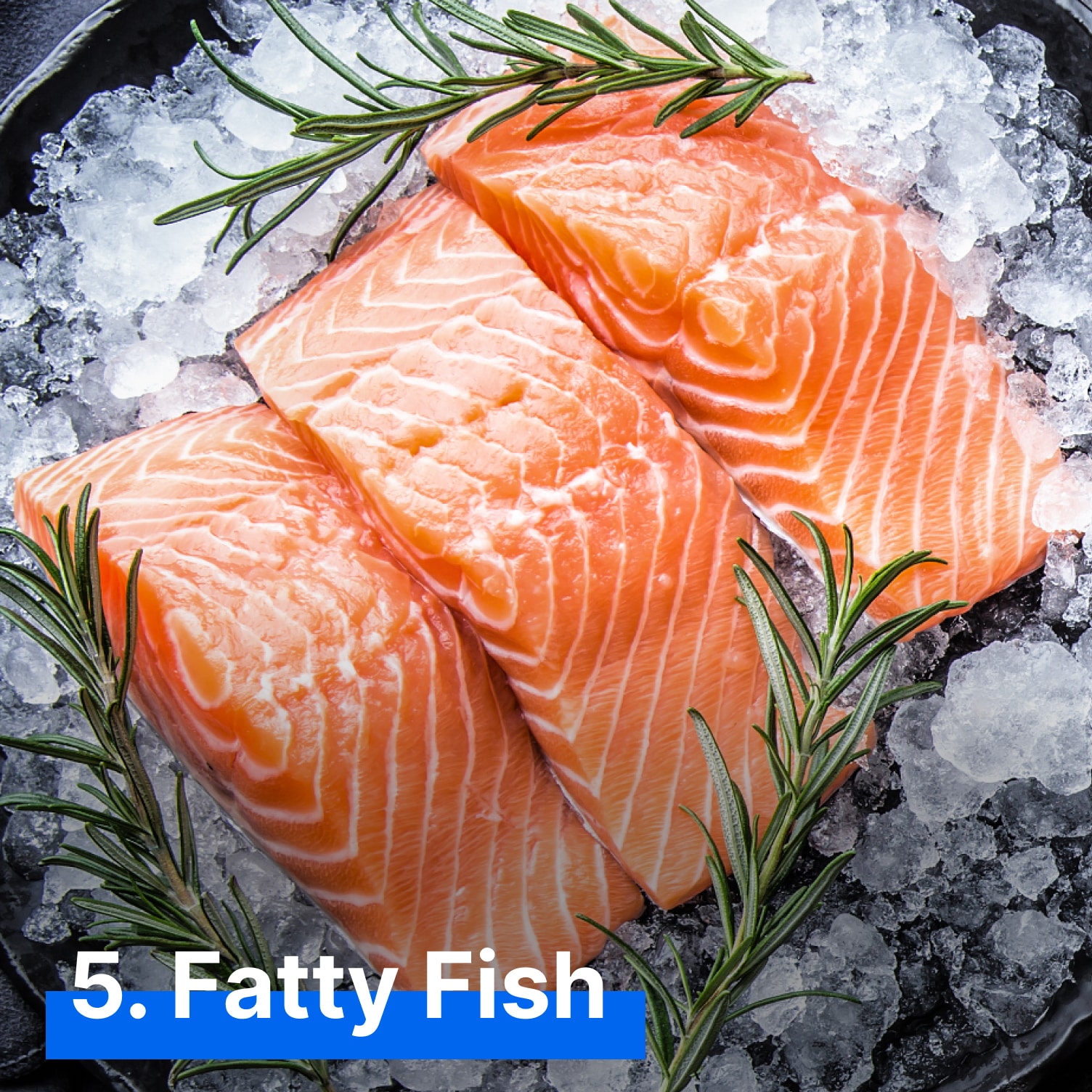
Fatty fish, like salmon, mackerel and herring, are fabulous sources of omega-3 fatty acids like DHA and EPA, which can help with the activation of certain immune cells and decrease inflammation. Fatty fish are also natural sources of vitamin D and zinc; one serving of wild salmon meets the daily recommendation forvitamin D.
Try it: Make a quick sheet-pan dinner or use smoked salmon instead of deli meat.
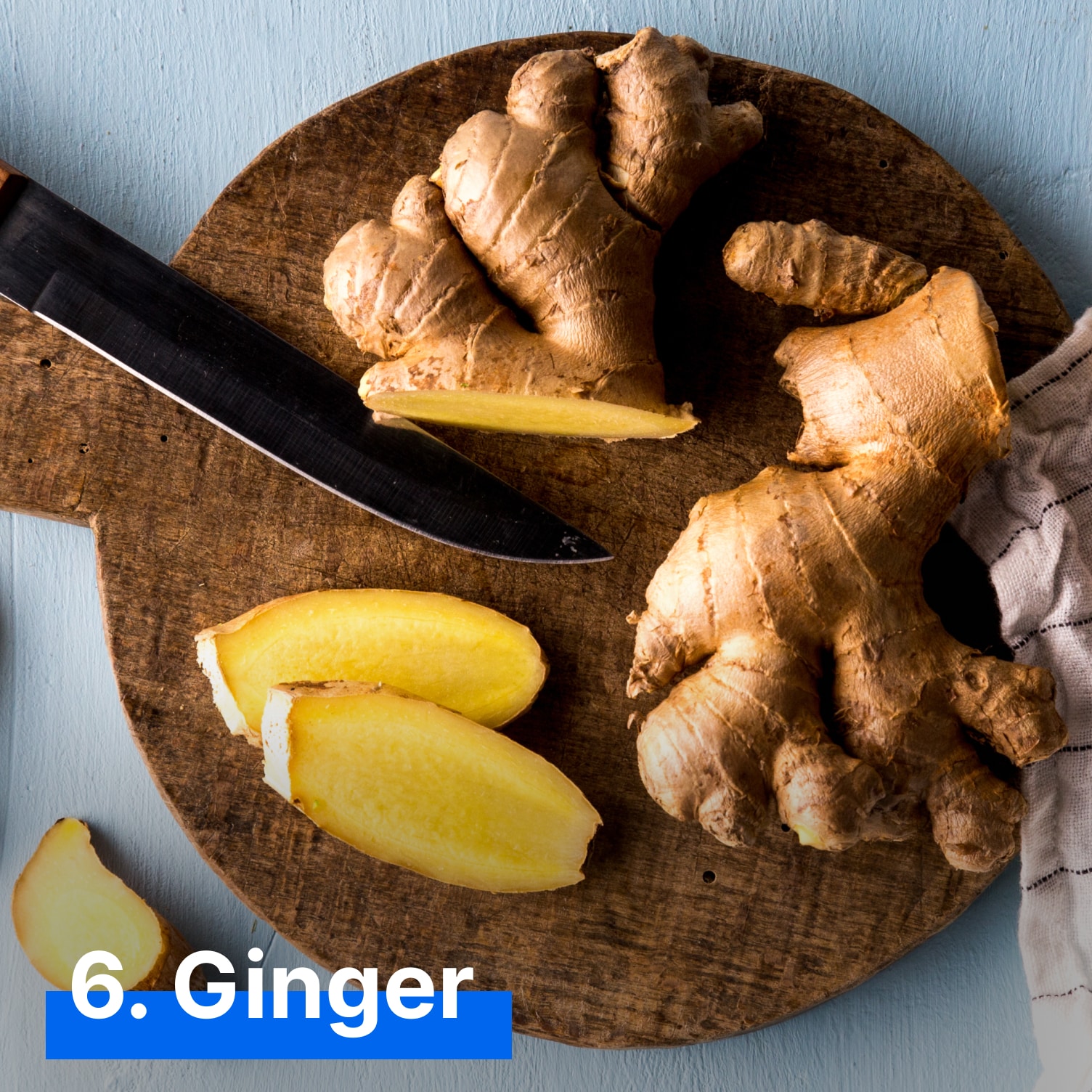
Ginger is known for its many medicinal properties, some of which include helping reduce sore throats and inflammation, and helping to optimize immune function. Ginger may also help decrease inflammation in respiratory infections.
Try it: Grate fresh ginger to add to soups or use it in tea.
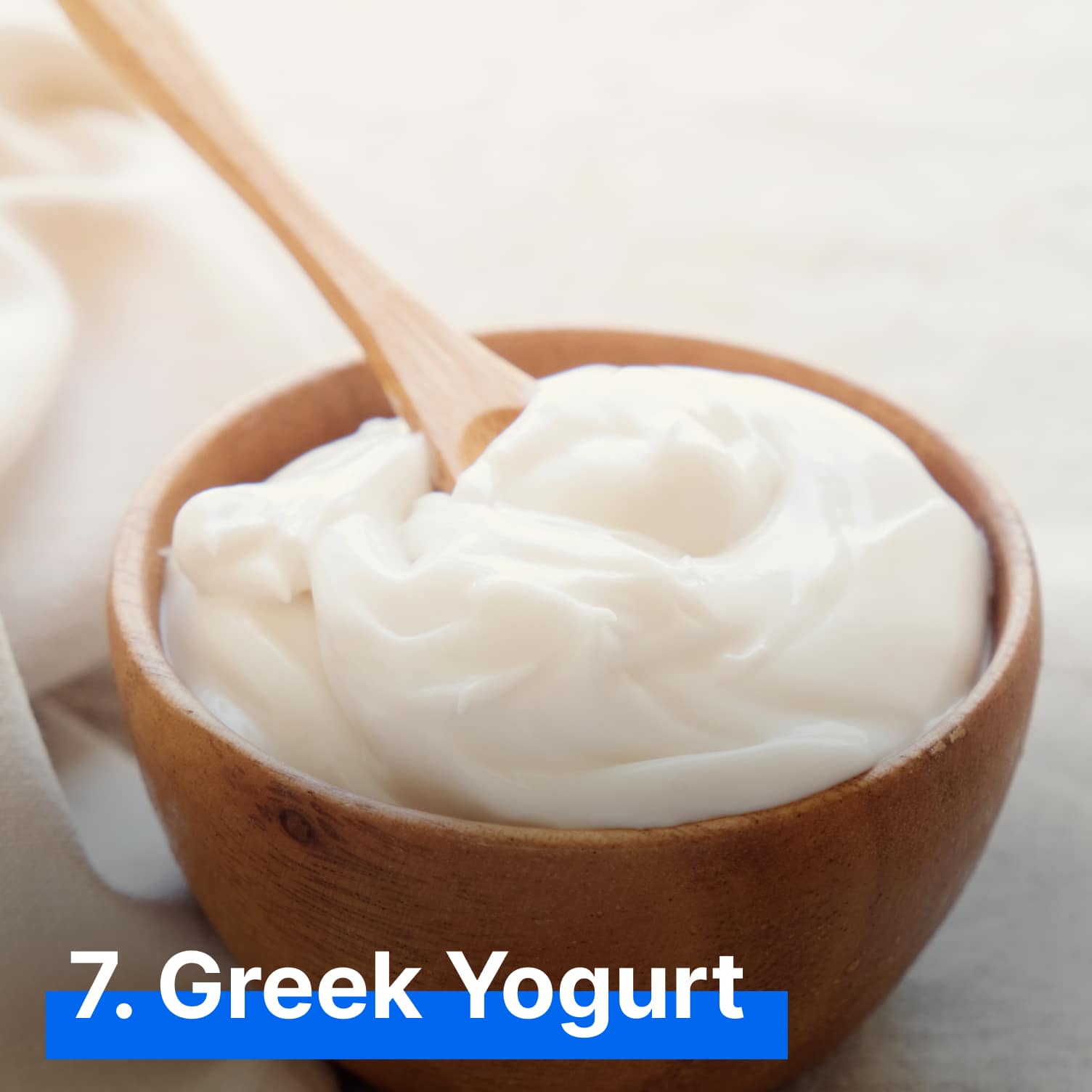
Greek yogurt is an excellent source of probiotics, bacteria that can help keep your gut healthy. Having a proper balance of “good” bacteria is important for a healthy immune system to help fight off invaders. Look for Greek yogurt or other types of yogurt with “live and active cultures” that contain a variety of probiotic strains and several billion CFU’s (colony forming units). Yogurt is also one of few food sources offering vitamin D, which can help improve the immune response to infections and boost mood levels.
Try it: Use yogurt as a low-cal alternative to mayo in chicken salad, in breakfast bowls or for a healthy frozen yogurt treat.

Raw honey, which undergoes less processing than traditional honey, contains more antioxidants and antibacterial compounds. These compounds help stimulate immune cells and fight allergies.
Try it: Add a spoonful to warm water or tea to stay hydrated or use it as a natural sweetener for baked goods, oatmeal, yogurt and smoothies.
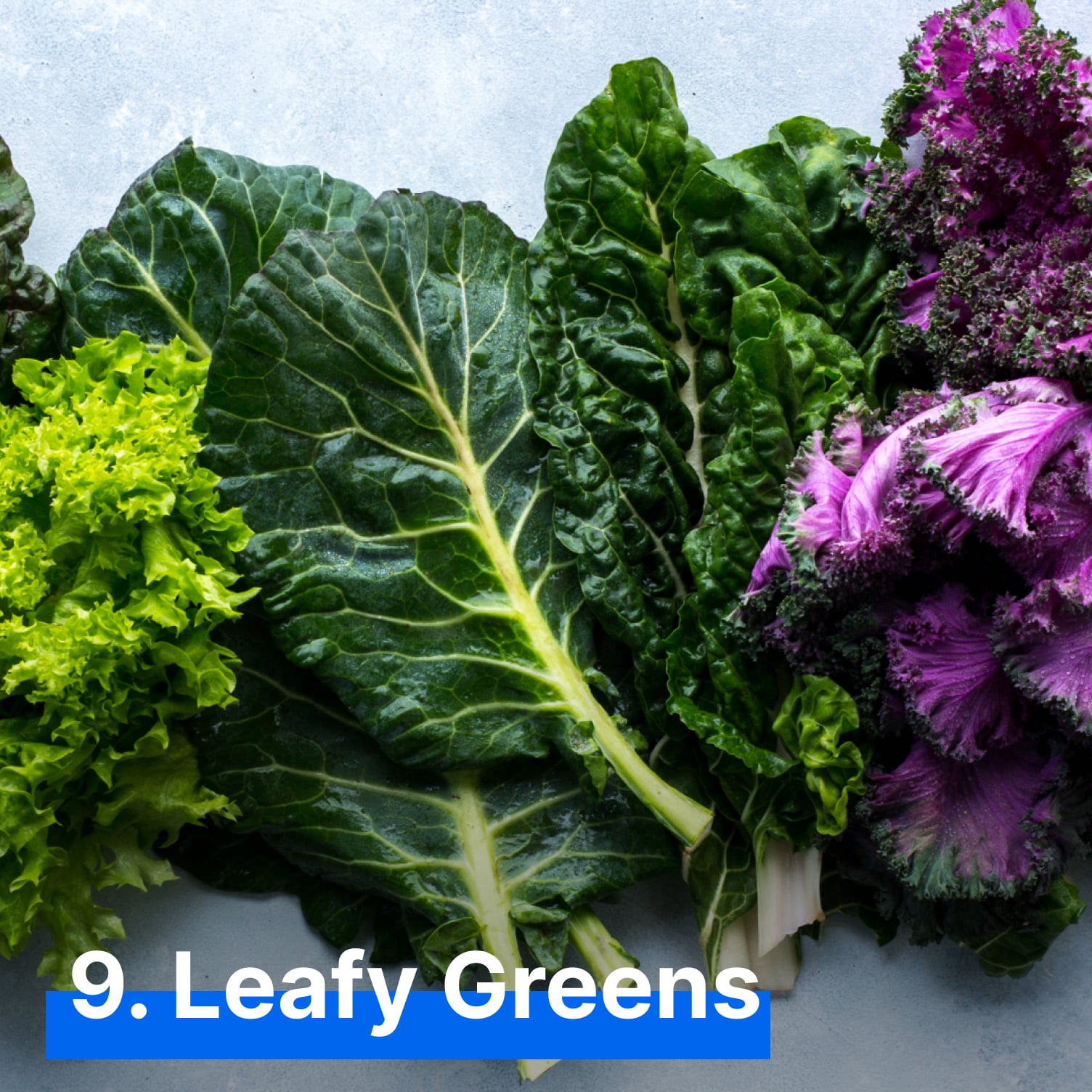
Leafy greens like kale, spinach and collard greens, are great sources of vitamins A and C. Vitamin A plays a critical role in enhancing immune function, regulating cellular immune response and decreasing inflammation. Leafy greens are also packed with several antioxidants and flavonoids.
Try it: Use them in salads, stir-fries, smoothies and soups.

Lean meat and poultry are great sources of zinc and B-vitamins, which play a role in many reactions in the body and aid the immune system. It’s also a great source of protein, an important building block to repair body tissue and fight inflammation.
Try it: Add chicken or beef to soups (you can also use the broth) along with plenty of veggies.
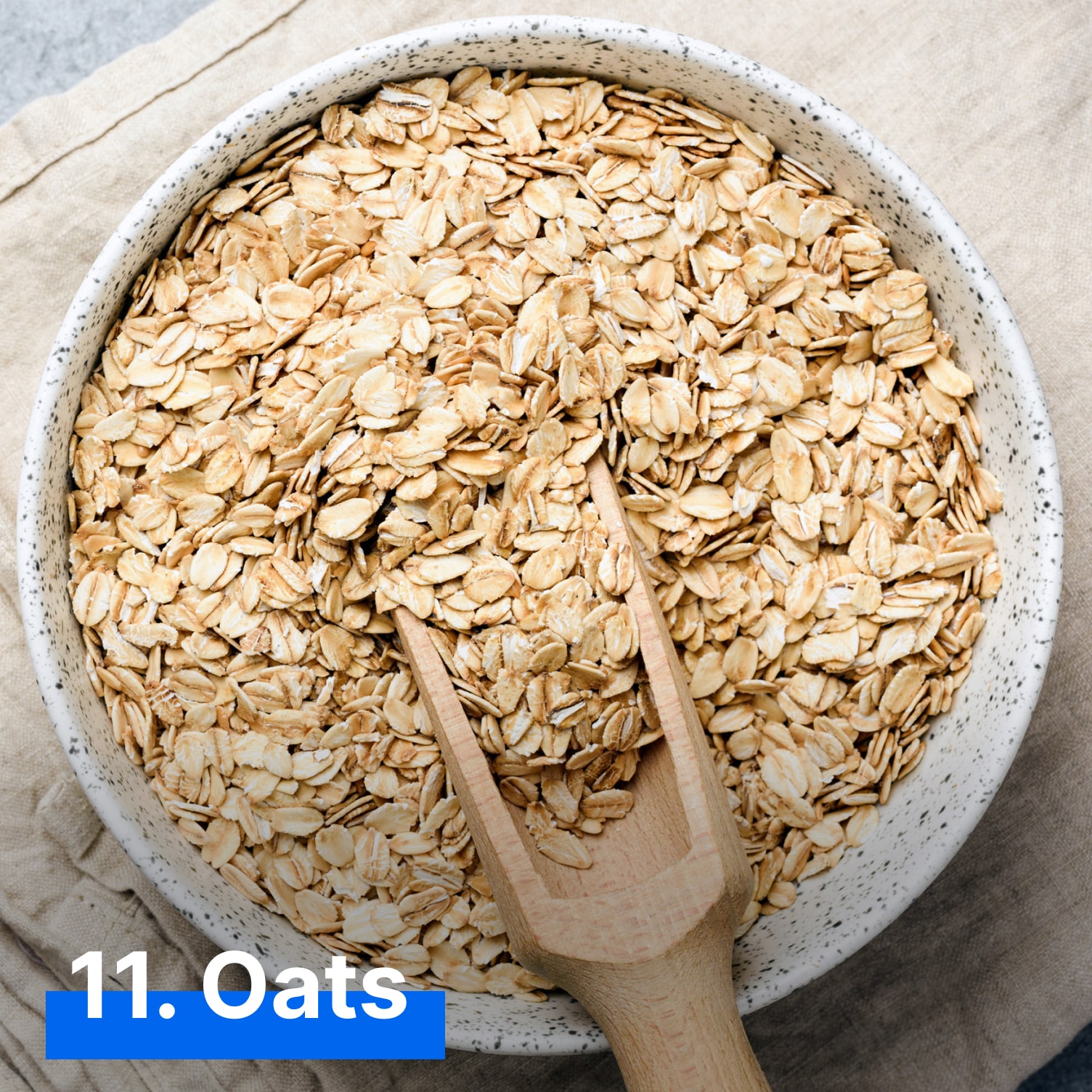
Starting your day with a bowl of oatmeal topped with seeds and berries can be a strong immunity booster. One cup of rolled oats offers myriad antioxidants and polyphenols and 2–3mg of zinc, almost 25% of your daily needs. Zinc helps support the immune system by limiting inflammation that can be damaging and helps to fight infections by aiding the development of white blood cells. Oats also offer beta-glucan (a type of dietary fiber), which can help lower cholesterol and strengthen the immune system.
Try it: Make overnight oats or use them in no-bake granola bars.
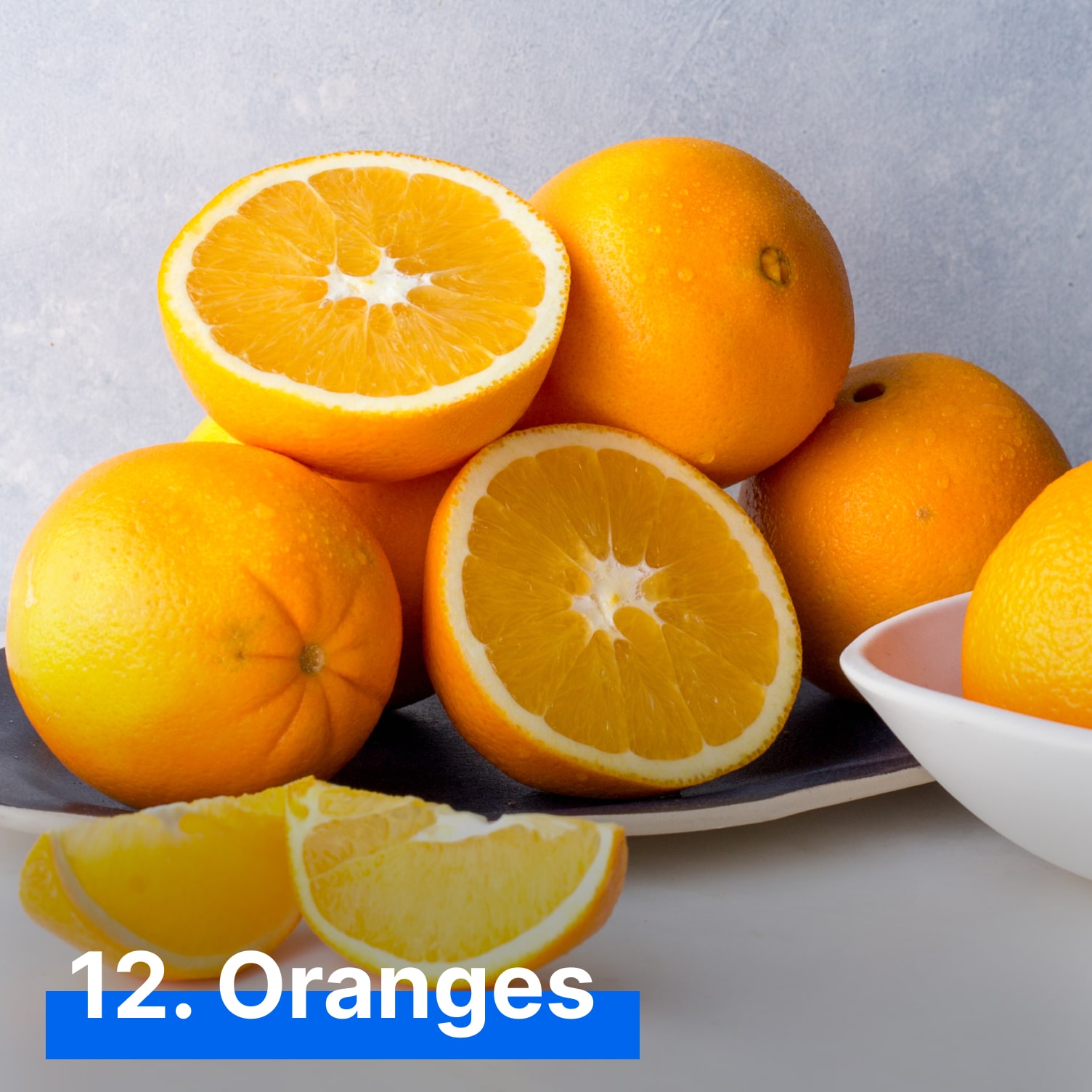
Oranges and other citrus fruits, like grapefruit, lemons, limes and tangerines, are rich in vitamin C. Research shows being deficient in vitamin C may impair immunity, while extra doses can reduce the duration of sickness. Vitamin C is a water-soluble nutrient, meaning the body doesn’t store it, so you need to keep replenishing it through diet.
Try it: Add citrus fruits to your smoothie, salads or as a snack.
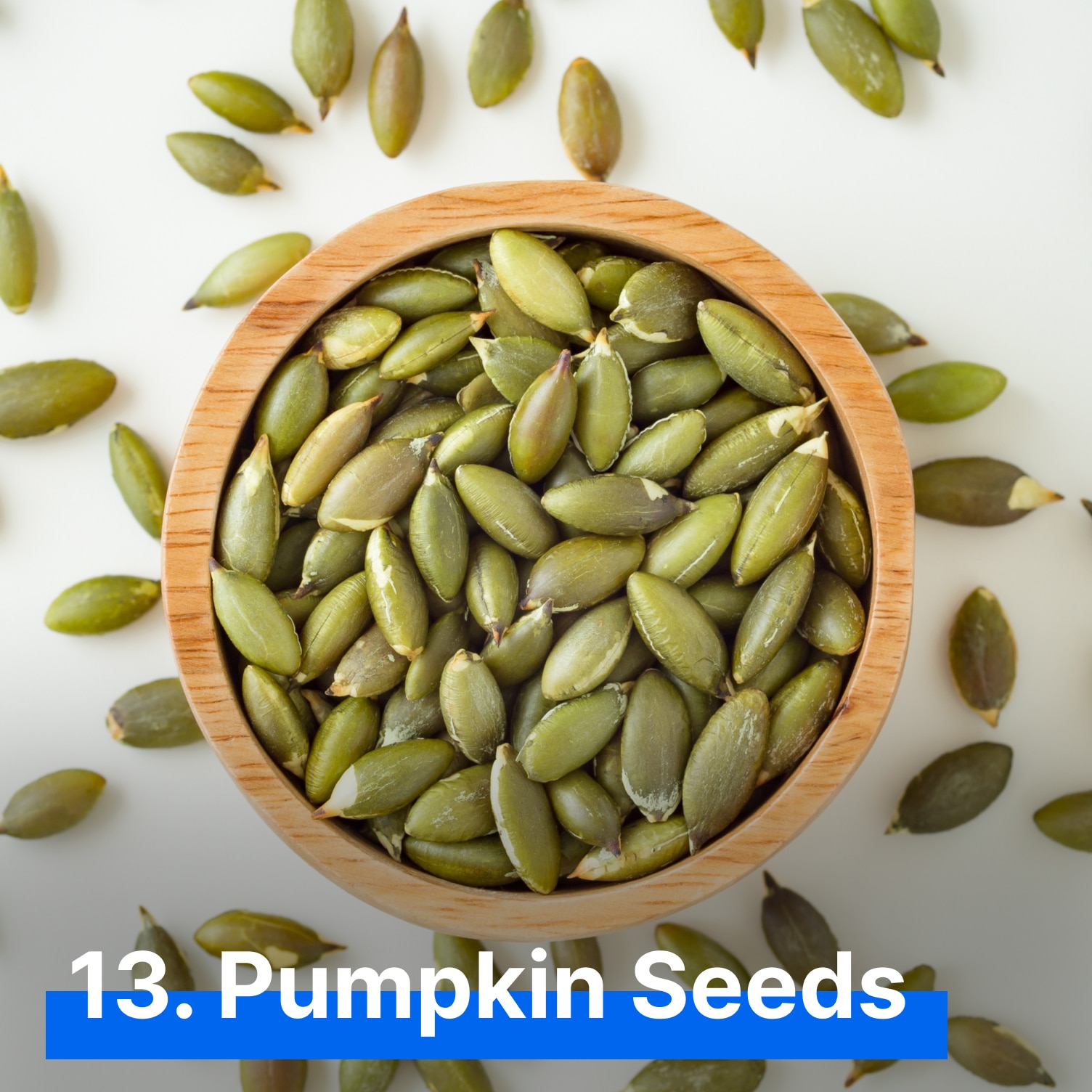
Pumpkin seeds are rich in vitamin E, an antioxidant that can support immune function. They’re also high in unsaturated fatty acids and zinc; a 1-ounce serving yields 15% of the recommended daily intake of zinc, several antioxidants and other important nutrients like iron, copper and magnesium.
Try it: Add pumpkin seeds to oatmeal, yogurt or trail mix.
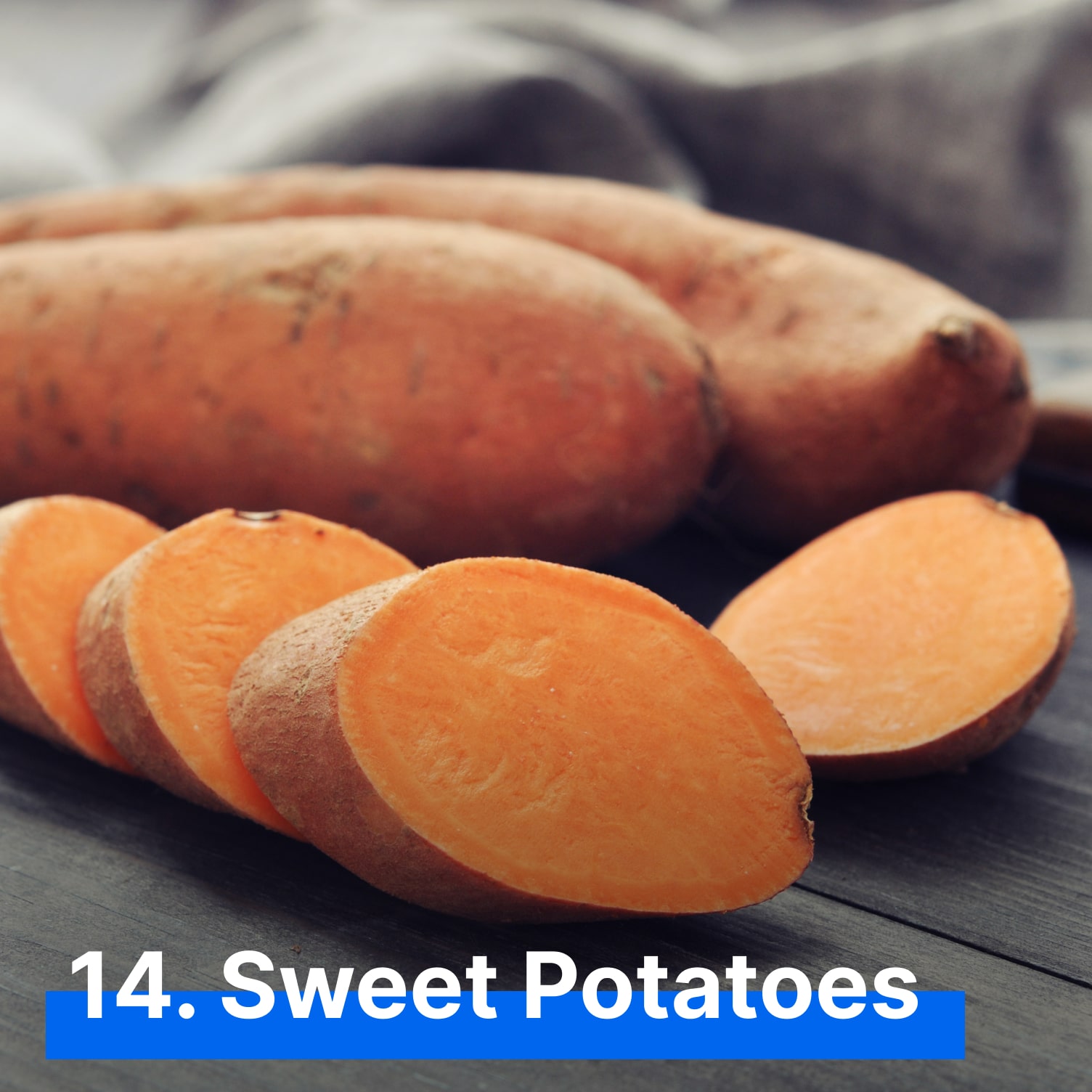
Sweet potatoes are rich in beta carotene, which the body converts into vitamin A; one medium sweet potato contains the recommended daily amount of vitamin A and also provides nearly half of your daily vitamin C needs. Sweet potatoes also offer fiber, manganese, potassium, B-vitamins and several antioxidants that help protect cells against disease.
Try it: Use them in waffles, as “toast”, in enchiladas and more.
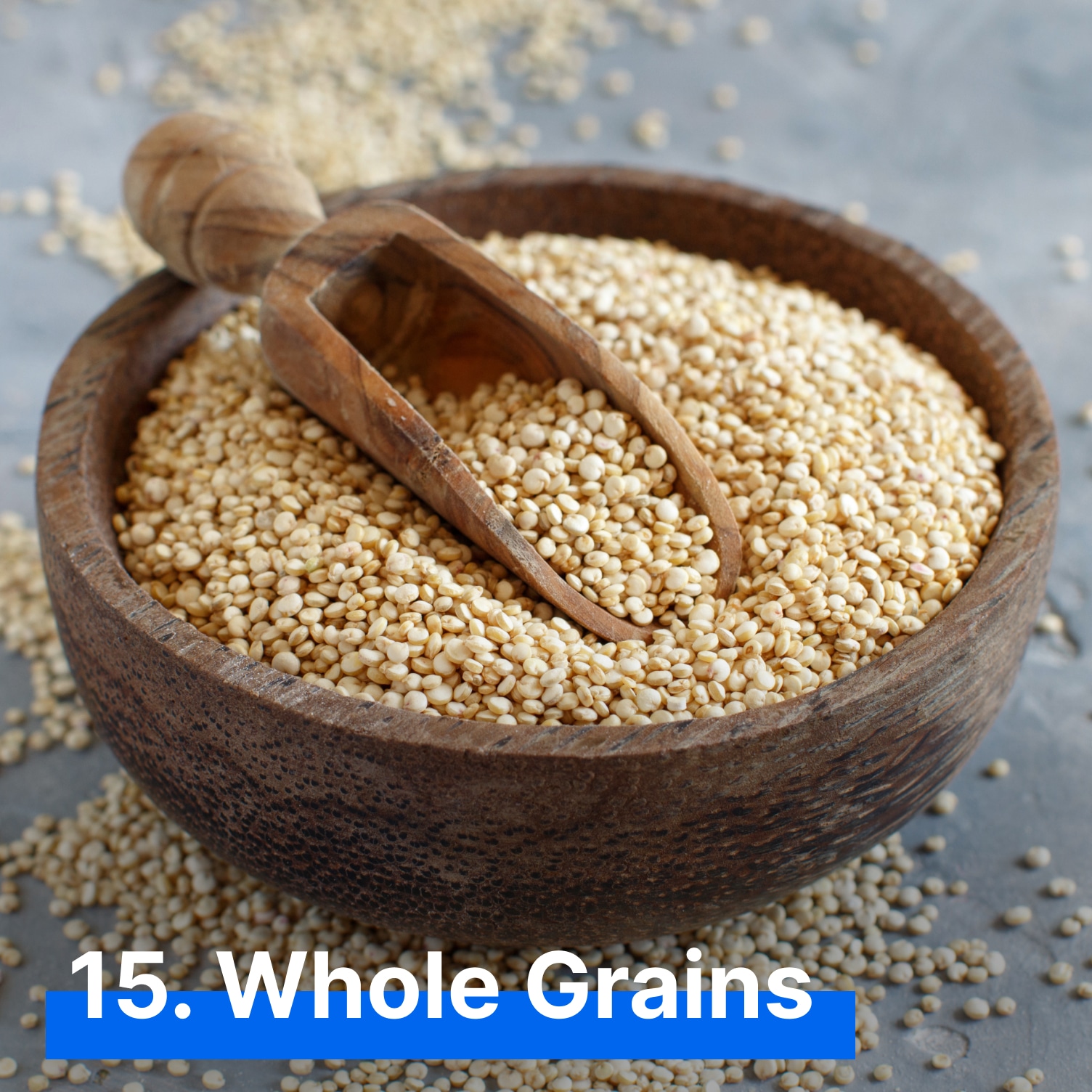
Whole grains, like oatmeal, millet, quinoa, barley, buckwheat, brown rice and freekeh are great sources of plant compounds, like polyphenols, sterols and fiber. Eating adequate amounts of fiber can help lead to a healthier gut and better immune response. Whole grains also offer selenium (an antioxidant), B-vitamins and trace minerals like iron, zinc, copper and magnesium.
Try it: Vary the whole grains you use for meal prep and grain bowls.
Originally published March 2020, updated October 2023
Make progress every day while you work on mini fitness and nutrition goals, like walking more steps or learning to track macros. Go to “Plans” in the MyFitnessPal app for daily coaching and easy-to-follow tasks to keep you motivated.




